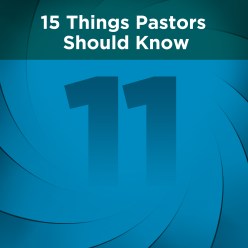Key Point: Many churches do not understand that most benefits constitute taxable income.
If a benefit is taxable and is not reported as taxable compensation by the church or the recipient in the year it is provided, the IRS may be able to assess intermediate sanctions in the form of substantial excise tax against the “disqualified persons” (generally, an officer, director, or relative of such a person) regardless of the amount of the benefit.
For this reason, ministers should be familiar with the components of taxable income to insure that they are correctly reporting their tax liability. Some examples of items that often constitute taxable income but are often overlooked include:
- Bonuses
- Christmas and other special-occasion gifts
- Retirement gifts
- Self-employment tax paid by a church
- Taxable fringe benefits
- Personal use of a church-provided car
- Below-market interest loans
- Nonaccountable business expense reimbursements
- Employer reimbursements of a spouse’s travel expenses
- Forgiveness of debt
- Severance pay
- Trips to the Holy Land
- Sabbatical pay
- Love offerings
Additional reading
Many of the items above are linked for further explanation about taxable benefits. For more information and examples of taxable benefits, see these two resources:
Go to the next article, “Public Accommodation Laws,” or return to “15 Things Richard Hammar Wants Pastors to Know,” to choose an article of interest or that fits a particular need.



